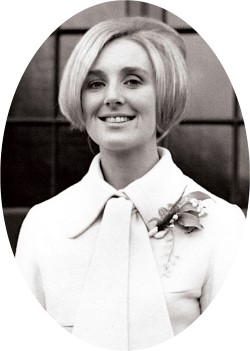Jill Rosemary Dias facts for kids
Jill Rosemary Dias (1944–2008) was a special kind of scientist. She was an Anglo-Portuguese anthropologist and historian. An anthropologist studies human societies and cultures. A historian studies the past. Her work helped inspire new research about the history of African countries that used to be Portuguese colonies. These countries are often called Lusophone Africa because they speak Portuguese.
Contents
Early Life and Education
Jill Rosemary Rainey was born in West Bromwich, England, on March 20, 1944. She loved learning! She earned a special degree called a Doctorate from Oxford University in 1973. Her studies focused on the history and government of areas in England called Nottinghamshire and Derbyshire.
Life in Angola
Jill married a Portuguese man named Alberto Romão Dias. They moved to Luanda, the capital city of Angola. This was a very exciting and changing time for both Portugal and Angola.
In 1974, Portugal had a big change called the Carnation Revolution. This event peacefully ended a strict government. After this, Angola's groups fighting for independence agreed to stop fighting. They signed an agreement that led to Angola becoming an independent country in 1975.
While living in Luanda during these big changes, Jill became very interested in Angolan society from the 1800s. She studied old Angolan historical records. This is how she started her career as a historian of the former Portuguese African colonies.
Jill later became a Portuguese citizen. The government asked her to change her middle name, Rosemary, to Rosa Maria. She found this rule quite funny, but she always kept signing her name as "Rosemary."
Academic Career and Research
In 1982, Jill Dias started working at the Universidade Nova de Lisboa in Portugal. She became a full professor in 1996. She taught students about the history of anthropology and Africa. She also taught about colonialism, which is when one country controls another.
In 1984, she started a journal called Revista Internacional de Estudos Africanos (International Journal of African Studies). This journal published articles about Africa. She also helped create and led the Centro de Estudos Africanos e Asiáticos (Centre for African and Asian Studies).
Jill was asked to help with a big exhibition about early African history. She prepared a huge report for it. The exhibition was held in 1992 at the National Museum of Ethnology in Lisbon.
Her Collection of History
After Jill Dias passed away in 2008, her family gave her important documents, books, and photographs to the Universidade Nova de Lisboa. These items are now part of an archive.
In 2011, a book called The Jill Dias Notebooks: Archive Inventory was published. It listed everything in her archive. Another book, The Jill Dias Lessons: Anthropology, History, Africa, Academy, came out in 2013. It shared ideas from an event held to remember her work.
Jill collected about 5,000 photographs and negatives. She didn't get a chance to organize them all. Her collection included many old postcards from African countries like Angola, Mozambique, Guinea, and São Tomé and Príncipe. Some of these postcards were from the 1890s! She also had many slides and photographs from the 1880s. All these pictures have been made digital. You can see them online at Memórias d’Africa e d’Oriente.
 | John T. Biggers |
 | Thomas Blackshear |
 | Mark Bradford |
 | Beverly Buchanan |


